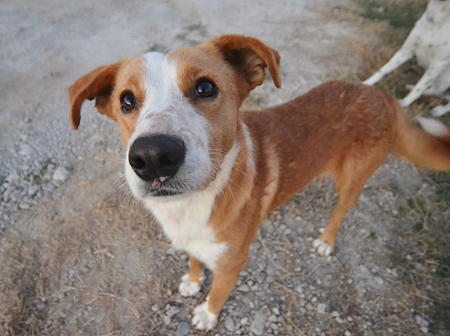DEM REMINDS DOG OWNERS TO ENSURE THAT THEIR PETS ARE VACCINATED AGAINST DISTEMPER

A confirmed canine distemper outbreak in Jamestown and Warwick affecting raccoons and skunks could signal an increased risk for pet dogs. Although the disease is not transmissible to humans, it is often fatal to dogs.
PROVIDENCE – Acting on alerts from both the Jamestown and Warwick Police Departments of a high number of raccoons and skunks apparently being infected with canine distemper virus (CDV) in those municipalities, the Rhode Island Department of Environmental Management (DEM) is reminding dog owners everywhere that vaccination is crucial in preventing the disease and to make sure that their pets’ CDV vaccinations are up to date.
Because the distemper vaccination is not required by law as opposed to the rabies vaccination, which is mandatory, it is likely that many pet dogs in Rhode Island are not vaccinated against CDV. It is a contagious and serious disease caused by a virus that attacks the respiratory, gastrointestinal, and nervous systems of puppies and dogs, according to the American Veterinary Medical Association (AVMA).
The virus can be found in wildlife such as foxes, coyotes, raccoons, skunks, minks, and ferrets; however, wild animals usually are affected after being exposed to the virus from an infected dog. Puppies and dogs most often become infected through airborne exposure (through sneezing or coughing) to the virus from an infected animal or when dogs have direct contact with droppings from an infected animal. It also can be transmitted by shared food and water bowls (another reason not to leave pet food dishes outside).
“Infected dogs can shed the virus for months and mother dogs can pass the virus to their puppies,” AVMA states. “Because canine distemper also affects wildlife populations, contact between wild animals and domestic dogs can facilitate the spread of the virus. Canine distemper outbreaks in local raccoon populations can signal increased risk for pet dogs in the area.”
Jamestown and Warwick Police advised that over the past two months, they have taken calls from residents saying they’d seen sickly-looking raccoons and skunks.
Officers euthanized several animals that were exhibiting symptoms such as shaking, walking in circles, and loss of awareness of people approaching them. DEM’s Division of Fish & Wildlife submitted these animals for testing and the test results recently confirmed the diagnosis of CDV. Symptoms of the illness typically include an emaciated appearance, disorientation, lethargy, and aimless wandering.
Historically, distemper has been rare in Rhode Island because of strictly enforced regulations protecting animals living here from imported diseases. However, DEM officials have noticed an uptick in cases related to the importation of rescue dogs from southern states, where CDV is much more prevalent.
In April, DEM had to quarantine two rescue shelters and associated foster homes that import dogs from areas of the country with a higher prevalence of CDV because of a diagnosis of CDV in dogs they had imported into the state.
“Canine distemper is a devastating disease for dogs and wildlife,” said State Veterinarian Scott Marshall, DVM. “Dog owners can protect their pets and minimize risk to wildlife by ensuring their dogs are properly vaccinated against distemper and not bringing pets into public that aren’t fully immunized.”
The American Animal Hospital Association’s 2011 guidelines state that puppies (under 16 weeks of age) should be boostered every three to four weeks until they reach 16 weeks of age, and that adult dogs (16 weeks and older) should only receive one vaccine for CDV.
Tips from the American Veterinary Medical Association on how to prevent the virus:
- Vaccination is crucial in preventing canine distemper.
- Avoid gaps in the immunization schedule and make sure distemper vaccinations are up to date.
- Avoid contact with infected animals and wildlife. Keep pet food dishes inside.
- Use caution when socializing puppies or unvaccinated dogs at parks, puppy classes, obedience classes, doggy day care, and other places where dogs can congregate.
- Pet ferrets should be vaccinated against canine distemper using a USDA-approved ferret vaccine.
For more information about DEM divisions and programs, visit www.dem.ri.gov. Follow us on Facebook at www.facebook.com/RhodeIslandDEM or on Twitter (@RhodeIslandDEM) for timely updates.
